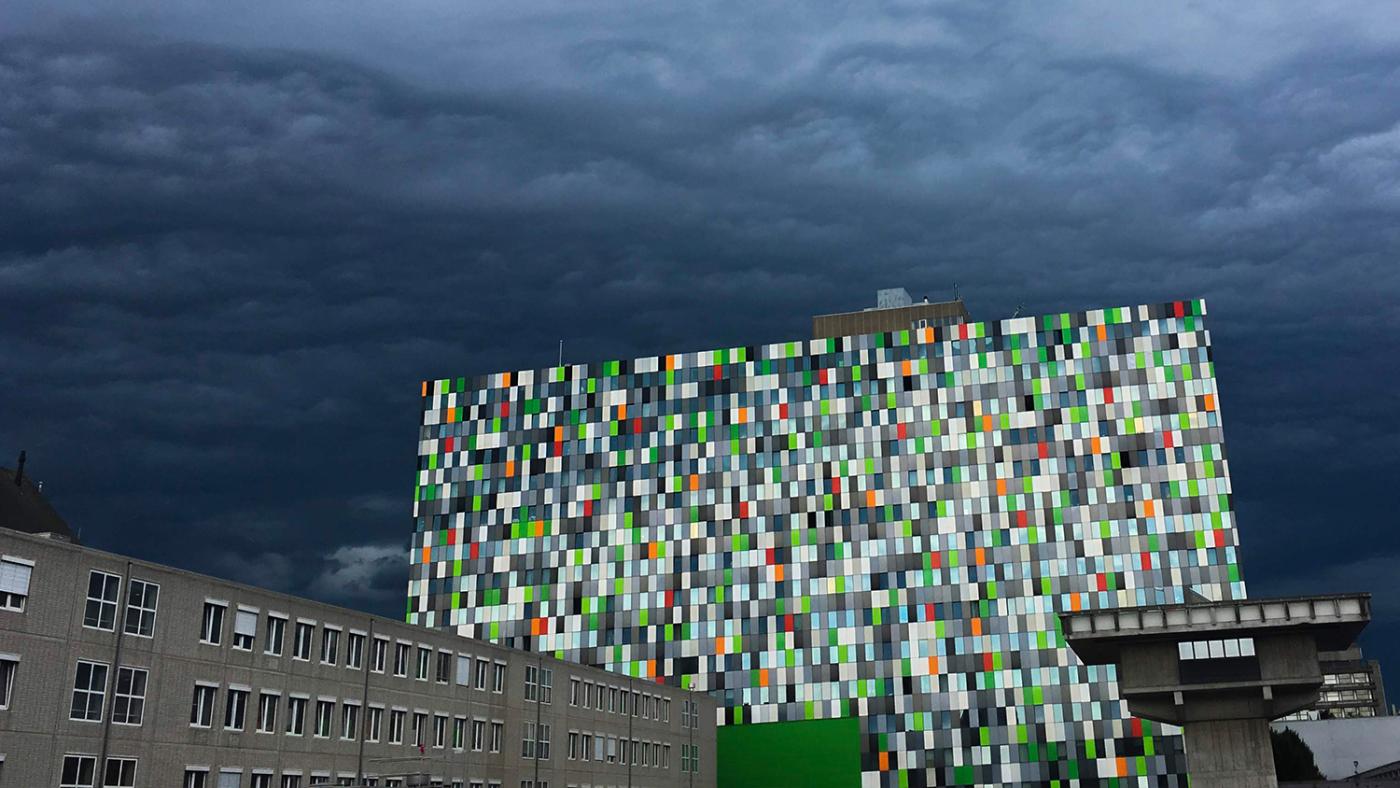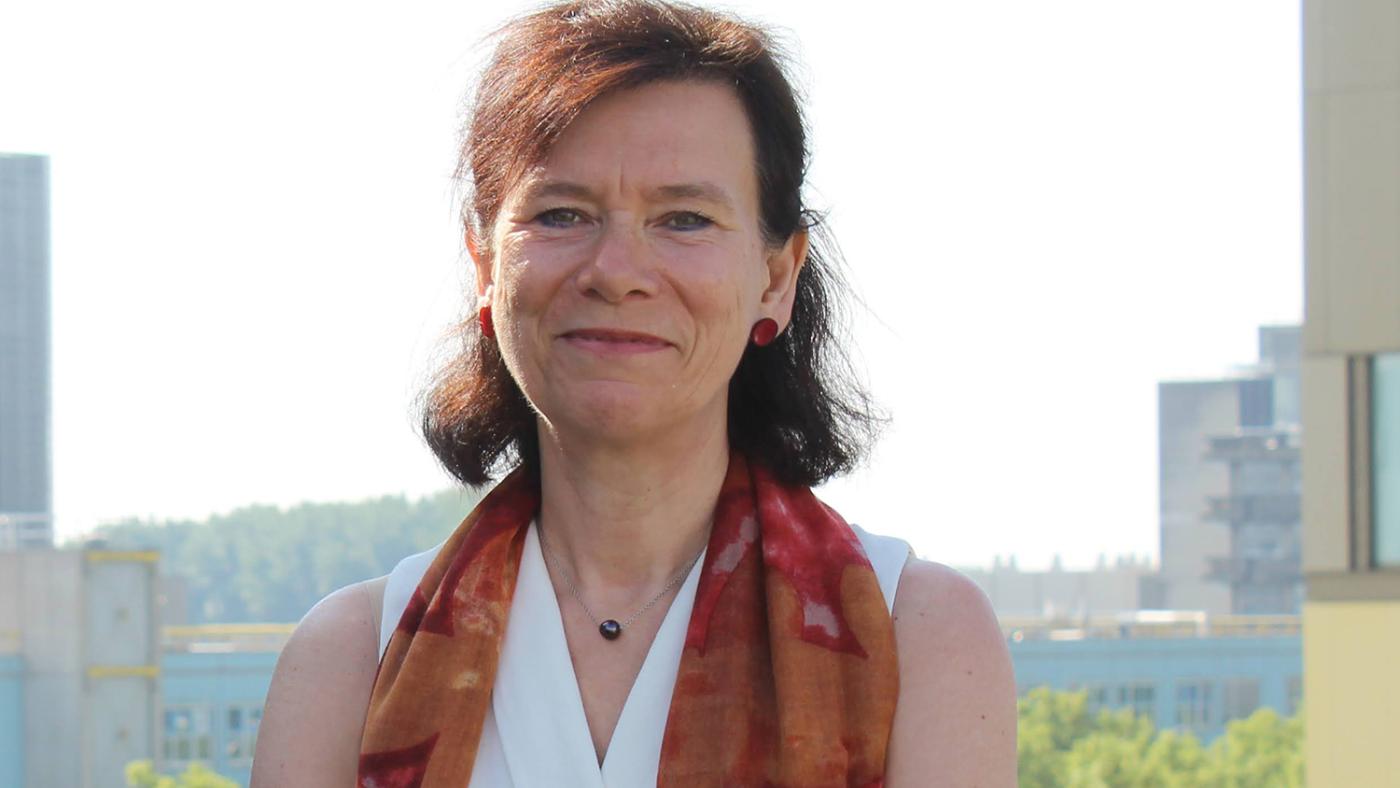Budget cuts are a reason to worry but not to panic
Utrecht University braces itself for dark times

Dutch universities and universities of applied sciences will be biting their nails until the third Tuesday of September. The coalition agreement made by political parties PVV, VVD, BBB and NSC states that one billion euros will be cut from the higher education budget. However, higher education institutions will have to wait until the so-called Budget Day to know for sure if the cabinet will carry on with these plans and, if so, how it is supposed to compensate for the loss. Either way, Utrecht University is preparing for the worst possible scenario, in which significant cuts are in store for 2026 and 2027. “We assume 6 to 9 percent,” says Vice-President Margot van der Starre. That's 50 to 75 million euros.
She admits that it's a hard pill to swallow. In recent years, the university's housekeeping book has been in good order. There is money left over every year. Additional investments in staff were made from the university reserves and faculties received a contribution from the so-called impulse funds to hire more permanent teachers and thus reduce the workload. The faculties were urged not to leave this money on the table. In 2022, after a long insistence from the universities, the former Minister of Education Robbert Dijkgraaf decided to repair the underfunding of the higher education sector by establishing the Fund for Research & Science and the Sector Plans, among other things.
2025 to be tough and subsequent years even harder
In April, the university learned that it would receive less money from The Hague in 2025. The Ministry of Education had predicted that fewer people would enrol in universities based on the declining number of young people in the country – best known as reference estimate. Since government financing is partly calculated based on the number of students, this means 11.3 million euros less for UU.
When the parties in the new cabinet unveiled their coalition agreement, the fear of further cuts struck hard. They intend to cut a total of 150 million euros from the Research & Science fund, precisely the amount that had been allocated for the incentive grants, a measure that has reduced researchers' workloads. For Utrecht University, this amounts to 17.8 million euros. In total, UU must save 29.1 million euros in 2025.
Even bigger cuts are expected for 2026 through 2028, but no one knows for sure what that will look like yet. For example, the agreement states that cuts will also be made to the sector plans, which means universities must jointly streamline training and research, as well as strengthen shortage sectors such as technology. Nationally, this amounts to 200 million euros yearly, for which the universities have now hired 1,200 people permanently. This would also eventually become part of the fixed budget from The Hague, just like the incentive grants.
Van der Starre calls this decision “improper management.” She says that “the rules of the game are changed mid-game.” Dutch universities are now considering taking legal action to combat the cuts.

UU Vice-President Margot van der Starre. Photo: DUB
Tough assignment
Van der Starre expects the university to still be able to absorb the budget cuts it will face in the next calendar year. “A healthy organisation should be able to bear a cutback of 1 to 2 percent simply by doing a little less here and there.” The expected cutback of 2.5 percent is steep, but she thinks it is feasible without major interventions.
The faculties and management have now started doing math. The Faculty of Humanities is particularly concerned about next year as it already has too few reserves in its cash this year. University College Utrecht has not yet submitted a budget, because it fears that promises about expanding the number of contract hours from the incentive grants cannot be fulfilled, as became apparent in the last University Council meeting of this academic year, which discussed finances. The University Administrative Service is also doing math as it has to make do with 9 million euros less, of which 1.8 million is a real cutback due to the disappearance of the incentive grants. The other faculties and management will be alright next year, although they are also cautious. "Increased monitoring and sharper choices" is the title of the Veterinary Medicine budget for 2025.
Nothing is sacred
In anticipation of more severe cuts in 2026 and 2027, drastic measures will be necessary, says Van der Starre. “We assume the worst possible scenario.” However, the university does not know what the new cabinet has in store for higher education. The million-dollar bill from Budget Day is awaited for this. “We now rely on what is stated in the outline agreement.” In addition to the discounts on sector plans and the research fund, she also mentions the fine for students who take longer than usual to graduate and pulling on the brakes on internationalisation. The latter two measures could ensure that fewer students come to Utrecht.
In anticipation of this doomsday scenario, the faculties and management have been given a "task" by the Executive Board. "This means that faculties must already look at their expenditure. If they have to make significant cuts, they should first ask themselves which tasks they can eliminate. Nothing is sacred in that regard.”
This is not fun, she admits. The Vice-President explains that the Executive Board was not prepared for this. “We strongly disagree with this. But we must be honest and transparent to the people in our organisation. If we don't share our concerns, and these cuts suddenly come our way next year, people will say: 'Shouldn't you have warned us?' If you see cuts coming way in advance, you can think about them in advance and consider which sensible measures you can take. We also discussed it this way with all deans and faculty directors.”
Reorganisations and layoffs
Van der Starre believes there will be no forced layoffs for the time being, but she can't guarantee that. UU now employs around 9,000 people. “I understand that people are thinking about this. Personnel costs are the largest cost item, but I don't think we can do with fewer people. The latest report from the labour inspectorate says that the workload is still pretty high here. We need everyone.”
In recent years, she has encouraged faculties to hire more permanent teachers. That number continued to grow in the first quarter. “I still fully support that. It is simply not nice to employ young people temporarily. They cannot build a good life like that.” What we shouldn't do is panic, she says. “We still have six months to make plans.” To ensure that no one is dismissed, faculties and management must now draw up a staff plan with a multi-year strategy, something she has been advocating for several years. “A good staff plan looks about five years ahead. Who will retire? What is the expected progression? For which positions do we have to find a replacement and which are no longer necessary because activities change? Managers can map this out.”
She thinks it is wise to take a critical look at which vacancies are filled and which ones aren't, as the faculties of Science, Social Sciences and Veterinary Medicine want to do, but she believes that a complete vacancy freeze would be premature.
If layoffs are unavoidable, the university must provide an appropriate social plan. “But I really hope it doesn't come to that. Universities are unlucky enough to have to ride the wave of politics. Scientists working for universities would prefer to do this for the rest of their lives. There are not many alternatives for them. If an airline has to fire pilots, they can usually go work for another company, but it's a lot harder for a scientist to do that. Managers now know that we have to move along, so we can be expected to implement a good policy in this regard.”
Where can UU save?
What measures would be sensible? If no cuts are made on personnel, other major expenses will have to be cut, such as housing costs, construction & renovation, and IT. Initially, the university will assess which tasks it can eliminate, says Van der Starre. UU has dozens, perhaps hundreds of tasks and projects underway. Some are mandatory, others are not. “We have been working on setting up portfolio management for some time. This has not yet led to results. Hopefully, things will go faster now that the financial outlook is poor.” With the portfolio management that the university secretary is working on, the Executive Board wants to prioritize the plans outlined in the Strategic Plan. They may also decide to cancel or postpone the plans.
Housing
The university will re-examine its renovation and construction plans, the costs of which were calculated at 1.8 billion euros last year. “We are looking at whether we can simplify or postpone these plans. We give priority to education and research projects. The university is simply unlucky to have a very outdated arsenal of buildings”, she says. “Some buildings require a lot of maintenance, such as the Kruyt building, which ultimately makes renovation cheaper. Androclus is the most energy-consuming building at Utrecht Science Park, so it is cheaper to build something new. There is an educational building in the city centre that needs to be renovated urgently for safety. We hope to come up with a new priority list by the end of this year.”
IT is expensive, too. “We need a huge amount of storage capacity, which is very expensive. So we can see whether everything we keep really needs to be kept. We could also verify if we should keep so many different applications running even though they do more or less the same thing. You have to pay for each application, so we could cut back on that. moreover, it is hard to find IT staff. We now have to hire people and they are twice as expensive.”
In the last University Council meeting, which discussed the budget cuts, members suggested areas where the university could save money, such as the Botanical Gardens, the European Master's program Charm EU or education programmes aimed at professionals – all matters that are close to board members' hearts. Everything is negotiable, Van der Starre answers. “Nothing is sacred.” The rector adds that he and the deans evaluate where savings can be made in terms of education without affecting quality. They will also look into which research projects could be phased out.
Budget Day
After an eventful academic year with elections, demonstrations and occupations, significant budget cuts are not exactly the nicest message the Executive Board could be sending employees ahead of the summer holidays. “Still, I hope everyone can rest and enjoy their holidays. Who knows, maybe the message won't be too bad on Budget Day. If so, there is still plenty of time to adjust the budget for 2025 and the plans for subsequent years. If not, I hope we can continue to talk to each other and investigate together how we can best cope with the cuts.”